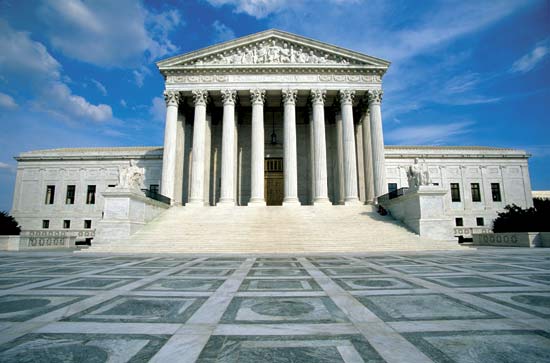MLFA’s Legal Division, the Constitutional Law Center for Muslims in America (“CLCMA”), filed a Petition to the Supreme Court on Thursday, December 15, 2022 on behalf of client Nathan Mowery. “Petitioner Nathan Mowery is a U.S. citizen, an Army Bronze Star recipient, a combat veteran and a faithful public servant. He is also a practicing Muslim,” begins the brief filed late Thursday. Mr. Mowery could not accept a position offered to him because, despite already having access to the same information and materials and already having high-level clearance, the government “halted” the processing of his status after a government examiner questioned him at length about his religion and religious practices. No other employees endured questioning on their religions during the same process. And once the government “halted” that process, Mr. Mowery could not resume his previous duties—leaving him instead to fill a newly created role on a different floor, with little to no duties other than occasional filing.
Mr. Mowery challenged those actions, but hit the brick wall of secrecy because the government cried “national security” and claimed the courts could look no further. The government claimed this protective cloak even though the agencies made sure to inform Mr. Mowery that the halt in processing his application was not a denial of a security clearance; had it been, he would have had other administrative remedies open to him. But the courts refused to proceed on his case anyway, feeling restricted by the Supreme Court opinion of Department of the Navy v. Egan, 484 U.S. 518 (1988). That case answered a “narrow question” of whether the courts could look beyond the due process provided at the agency levels where a grant or denial of a security clearance was at issue. But the government has sought in the last thirty years since that opinion to expand its reach and protections. And the courts have mostly agreed.
Led by Civil Litigation Department Head Christina Jump, CLCMA now challenges that expansion and asks the Supreme Court to clarify its own holding and define the scope where it applies. Otherwise, anti-discrimination protections become meaningless, and the government becomes free to discriminate even where national security concerns do not play a part, and even where no administrative remedies exist. That cannot be what Congress intended or the Supreme Court meant. So, CLCMA challenges the courts and asks the Supreme Court to fix this problem, because “Nathan Mowery deserves access to at least one forum in which he may substantively defend himself, just as he defended our country.”

